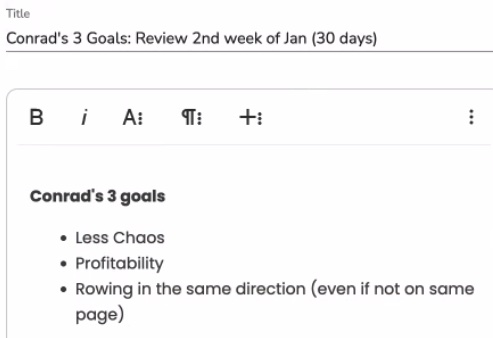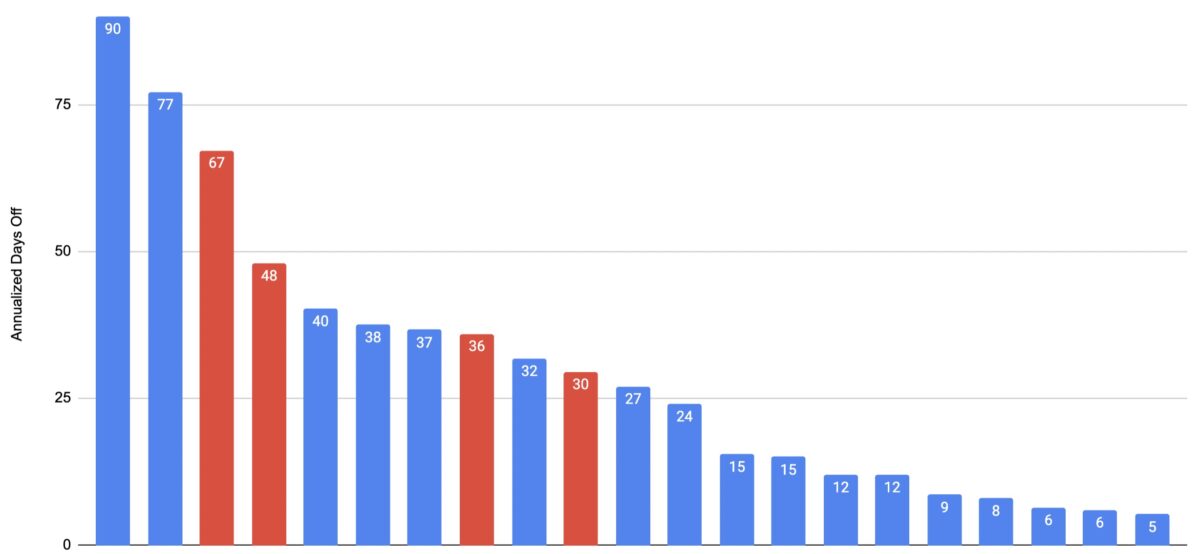Not Abiding By Majority Rule
The Women with Mockingbird
The one thing that doesn’t abide by majority rule is a person’s conscience.
– Atticus Finch
Not Abiding By Majority Rule is an interview series with some of the female business owners, partners, and leaders that Mockingbird has the fortune of working with every day. Women are nearing 40% of attorneys at U.S. firms today, which – credit where it’s due – is a large jump from a decade prior. But there is still a steep decline when it comes to women who have a significant financial stake in firms. Female attorneys account for only 23.3% among equity partners. 23%!! To be clear…
…if you have 4 equity partners in a room, less than one of those people is female.
So, we’re going to talk about the less than 1 in 4.
Because they are awesome.
Because they had to be.
Today’s interview is with Luhrsen Goldberg, a women-owned personal injury law firm out of Lakewood Ranch, Florida. Named partners Julie Luhrsen and Christina Goldberg have established a reputation as skilled, tenacious and trustworthy advocates for their clients, and are redefining the practice of personal injury. They are a boutique law firm with a mission to restore justice by getting their clients the maximum compensation for their injuries. And it’s made the Sarasota competition pay attention to these two women. Let’s just say they may or may not have received a cease and desist asking them to stop advertising.
What made you want to become an attorney? When did you know?
JL: Unlike my law partner (who knew at age 8 that she wanted to be a lawyer), becoming a lawyer was a decidedly gradual process for me. I toyed with the idea as an undergrad … after graduation, I dangled my foot in the water by working as a litigation paralegal for a quintessentially big, downtown defense firm…a couple of years of that work and I was persuaded and convinced that I wanted to become a lawyer…and the rest, as they say, is history.
CAG: I’ve always been a planner – always. It looks a bit different now than it did when I was a child but…as a kid, if there was a plan, I set goals, milestones, deadlines, and I stuck to the plan no matter what. As I’ve aged I’ve managed to learn to shift with the tides and welcome fate as it comes, but I’m grateful for my “stick-to-it-iveness” as a child, when I got an idea in my head that I wanted to speak up, help, and WIN…and what better way to do that than to be a lawyer?
Women account for almost half the workforce, but that percentage declines steeply between associate and managing partners – Any idea as to why that may be? What advice or tips did you receive that you attribute to your success? What advice or tips would you give the female associates out there now?
JL: I think my own personal experience speaks directly to why this happens. After my first child was born, circumstances allowed me to stay home for awhile. That hiatus turned into nearly “seven years of maternity leave,” as I jokingly refer to the period from my first child’s birth to my second child’s starting kindergarten. While I wouldn’t trade that time with my kids for anything, it did put me behind professionally. More women struggle with how to successfully juggle both (i.e. the demands of family and home with the competing demands and responsibilities that come with ascending the legal ladder) while also dealing with the background of implicit societal biases about the roles of men and women. Thankfully, conditions are evolving and with it a shrinking of the gap. In the meantime, female associates should collaboratively partner in life and at work with those with compatible outlooks…….
CAG: I think this has a lot to do with growing families. Aside from the obvious physical pregnancy, women tend to bear the brunt of the parenting role. As the dynamic of relationships change, I think we will start to see a shift in this. Me, for example – I PLANNED to be pregnant early – I passed the bar exam, the very next day I was in court at my first hearing at 8.5 months pregnant (a MISERABLE experience at the time but one I am so grateful for now), and 2 weeks later I was giving birth. I planned this so that I would have my son near the end of the year, take the rest off, then start the new year, and my new career, RUNNING. I made this choice because I know who I am. I knew being a stay-at-home mom wasn’t for me, I’ve always had bigger goals and I wanted to be mom extraordinaire. So I made it happen.
What are some circumstances or challenges you did not expect about being a female in this space?
JL: While I understand that the very qualities that are prized in men are often handicaps for women, it nevertheless still surprises me that some people – both in the general public and in the legal arena, have such visceral reactions to us.
CAG: Can’t say I’ve been surprised by anything, truthfully. But I also don’t use it as a reason for bitterness – I use it as a spring board to propel myself, my firm, my career, forward. It is a skill not to care what people think…and I’m proud that in this predominantly male-led field, my law partner and I have made names for ourselves…by being nothing but the honest and ethical women we are.
What do you love most about being a female in the industry?
JL: I’ve been in practice for a long time now and so part of what’s so great is watching the continued evolution and progress we’ve made.
CAG: I love being part of the change. I love being underestimated. I love being able to use misconceptions against my opponents. An encounter with me will leave a male counterpart rethinking his preconceived notions about what a female attorney is.
How did you persevere through the tougher times?
JL: I’m a firm believer in together we’re better and made it through some of the tougher times thanks to the help and support of friends, colleagues and co-workers.
CAG: My faith is strong…always. And I never isolate myself – indeed, together we’re better.
How important is a mentor? Did you have one? Does everyone need one?
JL: Mentors are invaluable and I’ve been fortunate to work with/for/alongside some really good ones. As for whether everyone needs one, see above (and be wary of anyone who thinks they don’t).
CAG: SO VITALLY IMPORTANT! I have many mentors to this day. I don’t pretend to know it all – it would be supremely irresponsible of me to do so. How better to learn than to surround yourself with those more learned??
What is the best approach to negotiating salary?
JL: Be prepared – do your homework and put your advocacy skills to good end.
CAG: Know your worth. End of story. If you don’t value yourself, you cannot expect others to value you. Notice I said KNOW your worth – not FAKE your worth. Be secure in your work ethic, drive, and vision, and KNOW what you bring to the table. This allows you to stay in a position of faith and power. There is no room for needy in a negotiation.
What do you want to achieve next?
JL: Continue to strategically grow our firm while ensuring that we don’t compromise our values and the kind of service we pride ourselves on providing that distinguishes us from others. While we enjoy that we stand apart for being a woman-owned firm, I look forward to the day when that’s not actually a noteworthy distinction!
CAG: Growth – I want to provide more services for our clients, I want to employ more people, provide for more families. I’d like to finally start allowing myself to play hard – I work hard so finding that balance is becoming more and more necessary!
About Mockingbird Marketing
Mockingbird is a full-service marketing agency focused solely on the legal industry. We combine our high-level expertise with personalized and responsive service that’s impossible to find anywhere else.
Contact Us
Using data-driven solutions, we create, measure and refine all aspects of digital marketing for law firms of any size, any practice area, any location.


